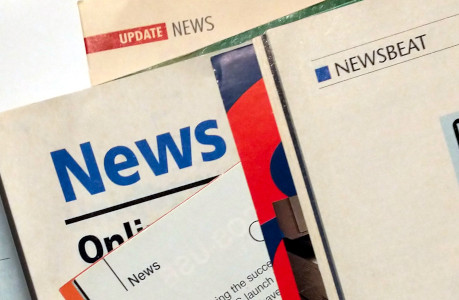Following on from the news that Pipedream is now free to download, Gerald Fitton has announced that Fireworkz for RISC OS is also now free to download. Fireworkz is an integrated word processor and spreadsheet package, with some very powerful and useful facilities, which works in a fundamentally different way to PipeDream. Both are very powerful and useful pieces of software and, if you haven’t used them before, they come highly recommended. A mailing list has also been set up for the software on Google Groups by Stuart Swales, the programmer responsible for updating the software.
Sine Nomine Software has released a new version of DrawPrint, a piece of software that allows you to print Draw files (or Sprites or JPEGs) over several pages at a user selected scale, with margins and a configurable page overlap, and so on. Version 1.31 fixes a number of bugs connected with the way the software handles text areas in Draw files.
In My Diary, a free personal information manager for Windows and Mac OS X, can now import data from Organizer, the RISC OS application that inspired it. With its user interface being similar to the RISC OS application, the software is particularly suited to those users who, like Kevin Edwards, the developer of In My Diary, also have to work on other platforms, but miss the familiarity of Organizer.
Christopher Dewhurst has posted to the ARMini-support mailing list that he has updated a small public domain application that he has had on his machines for many years and found useful. Set-Type, as its name suggests, is an application designed to set filetypes. Christopher’s update involved giving it a new set of icons, correcting some bugs, and rewriting the Help file to be more user-friendly. Written in BBC BASIC, the software should be perfectly happy on any flavour of RISC OS computer.
Dave Higton has made two new pieces of software available from his website. BBFlash is an application to write the four (Beagleboard) or six (Beagleboard-xM) files necessary for the board to boot. The files can be written to the card supplied from the retailer, or one that has been created with SDCreate. The second piece of software, SDActive, can then be used to set the first partition on the card as Active, which is necessary for the board to boot from the card.
Alan Buckley has made available a new version of PackMan, a manager front-end for packages distributed via the RISC OS Packaging Project. Version 0.6 beta includes an ‘Upgrade All’ menu option to upgrade all installed packages at once, the facility to display a list of all installed packages by Adjust clicking on its icon bar icon, the ability to run an application by double clicking on it in the Apps window, the ability to drag an application from the Apps window to the filer to create a stub (a mini/pseudo application that serves as a shortcut to the real application), a new window to show disk usage and allow the cache to be cleared, and a fix to a bug that caused a crash after ‘Update Lists’ on RISC OS 6.20. If you already have PackMan (or RiscPkg) installed, then it can be used to download and install the new version of PackMan, otherwise instructions to download it can be found on the PackMan page on Alan’s website.
Alan has also released version 0.5 (alpha) of TBX, a C++ library, designed to help with the development of C++ applications for RISC OS. It comes with a user guide and reference documentation, and examples of its use are available as additional downloads, including a program to help generate simple C++ skeleton projects. Released under the permissive MIT/X11 licence, the library can be used with commercial and non-commercial applications without charge, and the library, examples and skeleton application generator are all supplied in RISC OS Package form, so can be installed using your preferred package manager, though instructions on downloading and installing manually can be found on the TBX web page for those who prefer that option.
Another programming library programmers might find useful is Popcorn, Rik Griffin’s game programming library, which can be found on his new website. According to Rik, it’s a relatively simple and lightweight library, written in C, that provides useful facilities for games writers – for example fast plotting of sprites and other graphics primitives, game object management and so on. There’s a tutorial on the website, along with an example Space Invaders type game, Hive, which comes with full source code. Rik has also made his TreeView and Tabs Toolbox gadgets available from his new site – two small modules that extend the Toolbox library used by developers.
The RISC OS Blog has been given an overhaul and now incorporates the blog and forum on the actual site, rather than linking to them on external providers. Contact addresses have also changed as a result – website feedback and enquiries should go to admin@ and general enquiries and article submissions should now go to contact@ – using the riscosblog.co.uk domain in both cases. The Blog is also now accepting RISC OS related advertising; non-commercial adverts will be displayed on the site for free, whereas commercial banners will require a donation of some sort – software, money, chocolate, etc. Contact The RISC OS Blog for more details.


